My Succulent Is Too Tall: How To Prune A Leggy Succulent Plant
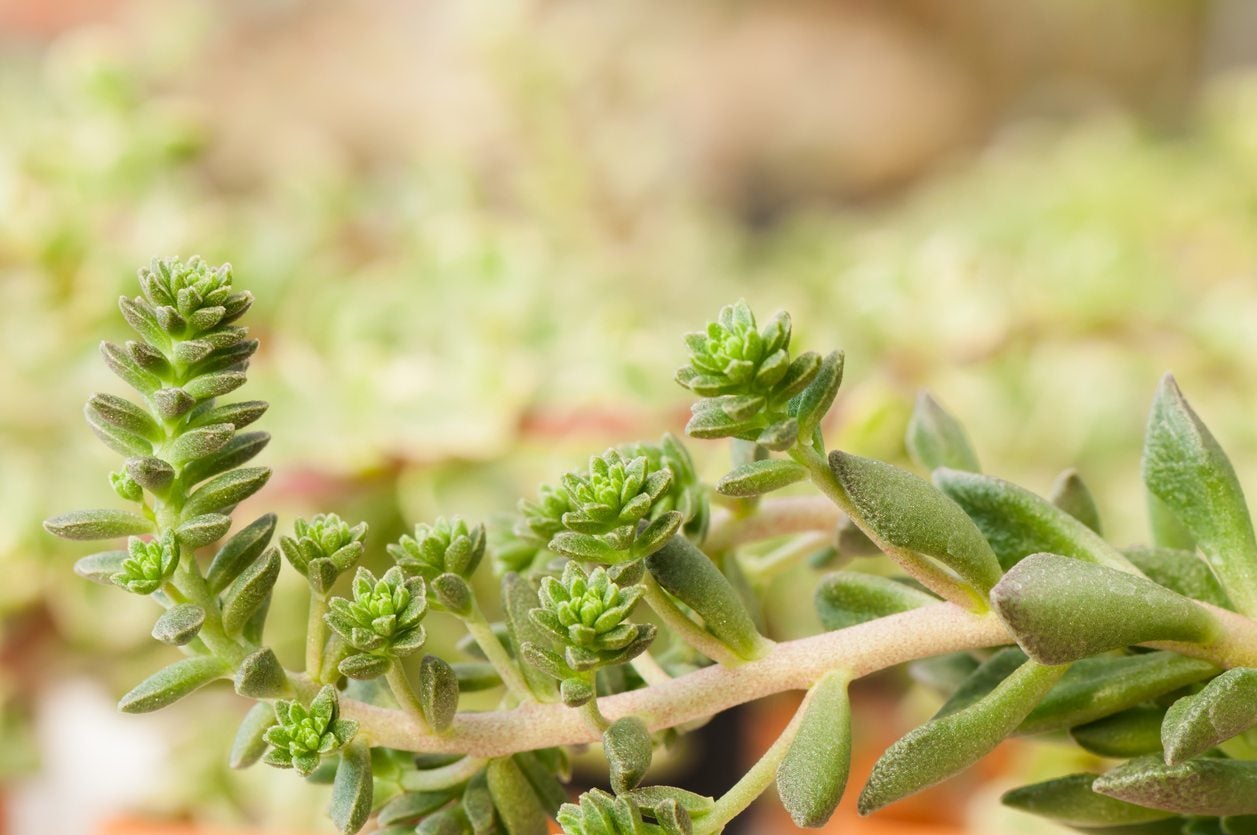

When it comes to drought tolerant plants, most succulents win the prize. Not only do they come in various forms and sizes but they require very little extra care once established. Mature plants and those in low light result in leggy succulent plants. If you want to know what to do if succulents grow too tall, continue reading for care and prevention.
Help, My Succulent is too Tall!
Most succulents are low growing beauties that fit easily into nooks and crannies in rockeries, flower beds, containers and among paving stones. Succulent pruning is not usually necessary but in the case of plants that become elongated and lose the compact nature for which they are often prized, the practice is a simple one. Knowing how to prune a leggy succulent can restore the desired size of the plant and also provide you with material with which to start another of these hardy and easy plants. You know it is time to manage your plant when you say, "My succulent is too tall." This may be from flowers, foliage or stems, and the plant may simply not fit into its original space or have a reduced appearance. What to do if succulents grow too tall will depend upon the variety of plant you are growing. When plants are grown indoors or in other low light situations, they undergo a process called etioliation. This is elongation of the stem as the plant stretches upward to catch more light. The simple solution is to move the plant to a southern exposure. But this still leaves that leggy party. Fortunately, leggy succulent plants can be topped, removing the part that is too tall and allowing new shoots to form and develop into a more compact plant.
How to Prune a Leggy Succulent
Succulent pruning is not rocket science. You need sharp, clean scissors and the conviction that you will do no harm to the plant. The amount you remove depends upon how tall it has gotten but you must leave several healthy leaves so the plant can photosynthesize and gather energy to form new shoots and feed itself. In cases where the plant has developed a corky or almost woody stem, you will need pruners or even a new razorblade to snick off the offending part of the plant. Make your cut just above a set of leaves for a better appearance and to avoid fungal issues on stray stems. Continue the same care and move the plant to a sunnier area to avoid a repeat of the situation. Don't throw away the cutting! You can easily start it in a separate location and double your stock of your favorite succulents.
Rooting Leggy Succulent Plants
Let the part you cut off callus on the end for a couple of days. If the cutting is very tall – more than 5 inches (1.27 cm.) – you can cut it again into a more manageable size. Let each cut end dry out before planting. With succulents you rarely need a rooting hormone, but it might help roots establish more quickly. Some succulents will form roots if just left out to dry. Place the callused cutting on the top of succulent soil mix or for a long stem, insert it just slightly into the medium and use a small stake to hold it upright. Keep the container dry for a week and then mist the top of the soil. After the plant has rooted, give it the normal amount of water for that type of plant. You now have a whole new plant simply by improving the appearance of the old. Succulents are amazing that way!
Gardening tips, videos, info and more delivered right to your inbox!
Sign up for the Gardening Know How newsletter today and receive a free copy of our e-book "How to Grow Delicious Tomatoes".

Bonnie Grant is a professional landscaper with a Certification in Urban Gardening. She has been gardening and writing for 15 years. A former professional chef, she has a passion for edible landscaping.
-
 12 Lush Alternatives To A Lawn For Sustainable Spaces
12 Lush Alternatives To A Lawn For Sustainable SpacesAlternatives to a lawn are beautiful and also beneficial to your local ecosystem and its pollinators. Explore our top picks for plants to replace grass.
By Tonya Barnett
-
 Types Of Tomatoes Explained: Explore The Many Wonderful Shapes, Colors, Flavors, & Best Uses
Types Of Tomatoes Explained: Explore The Many Wonderful Shapes, Colors, Flavors, & Best UsesThe world of tomato varieties is vast and fascinating. Learn about the key types to grow in your garden, tailored to your preferences and space.
By Amy Grant
-
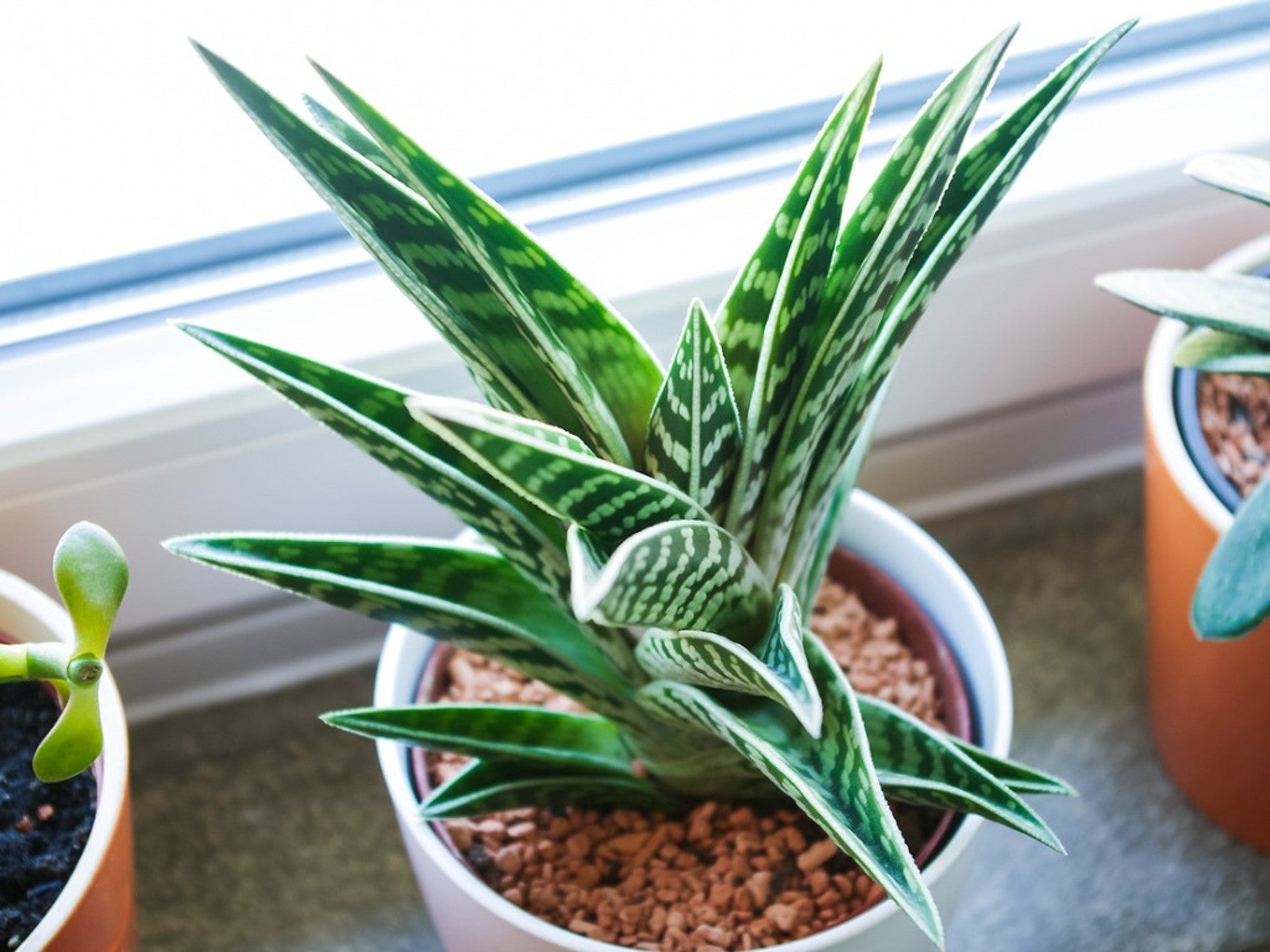 Variegated Succulents To Add To Your Plant Collection
Variegated Succulents To Add To Your Plant CollectionRead about some of the pretty variegated species that add beauty and interest to your succulent collection.
By Becca Badgett
-
 How To Protect Succulents And Cacti From Rain
How To Protect Succulents And Cacti From RainRain has the potential to cause damage to our cacti and succulents. However, when planted in proper soil, rainfall may perform as just a deep watering. Read on for more.
By Becca Badgett
-
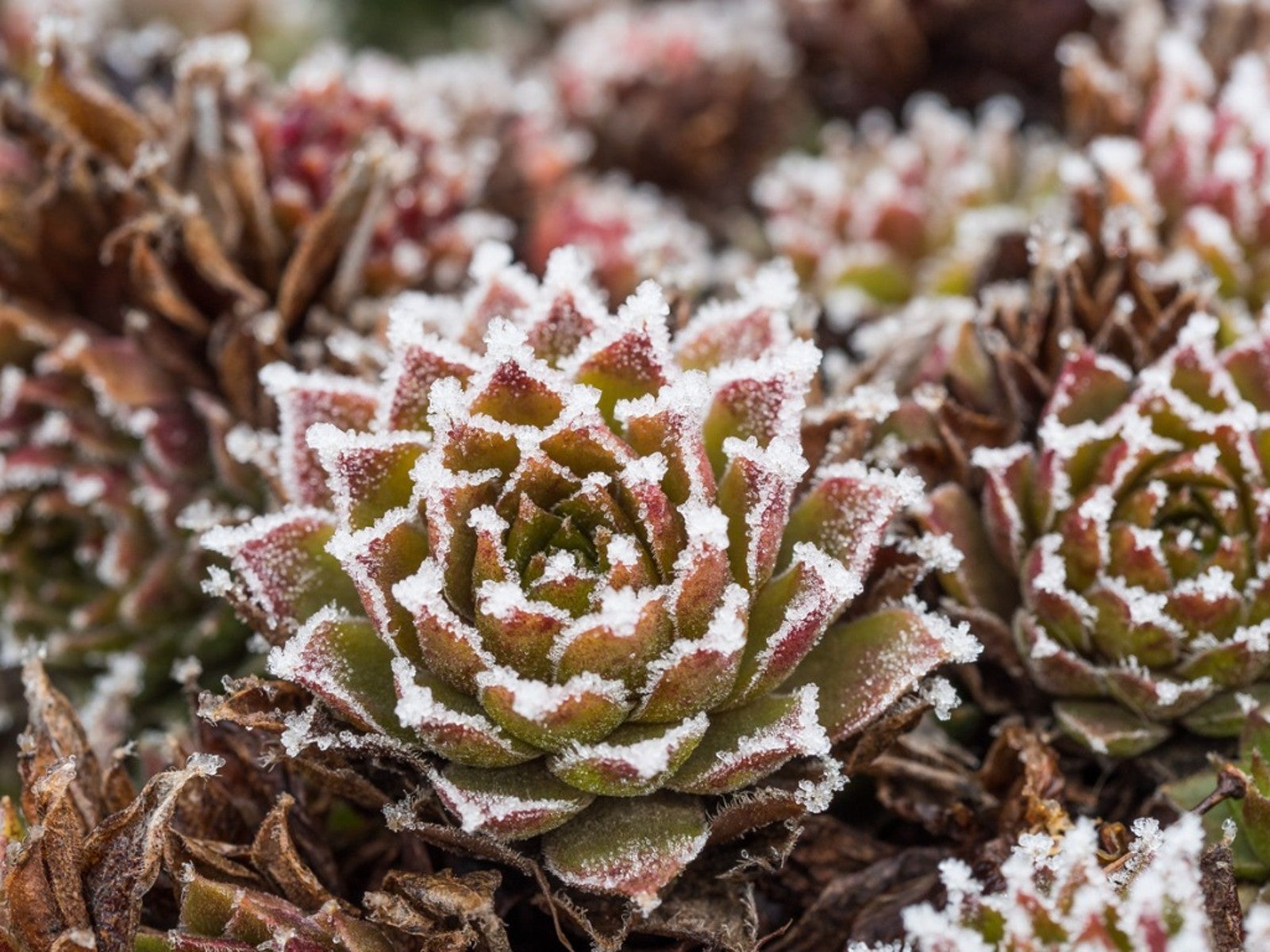 Succulents and Frost: How To Save A Succulent From Frost Or Freeze
Succulents and Frost: How To Save A Succulent From Frost Or FreezeCan succulents withstand cold? Succulents and frost don't traditionally go together and can result in damage, but you may be able to save frozen succulents.
By Bonnie L. Grant
-
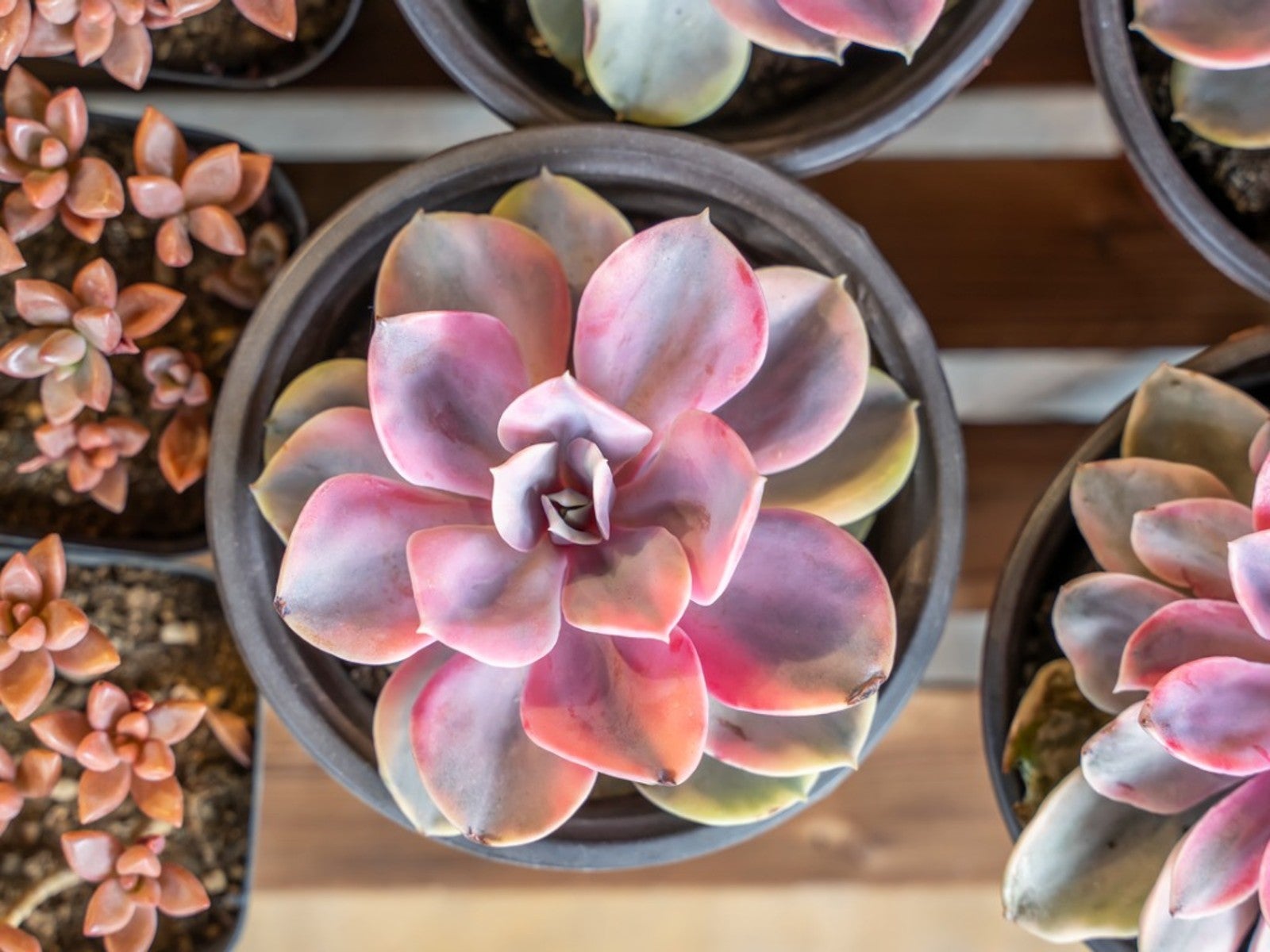 Pink Succulents Varieties To Try: How To Grow Perfect Pink Succulent Plants
Pink Succulents Varieties To Try: How To Grow Perfect Pink Succulent PlantsPink succulents may display the color on leaf edges or with streaks or blotches mingled throughout the foliage. Here are our favorites.
By Becca Badgett
-
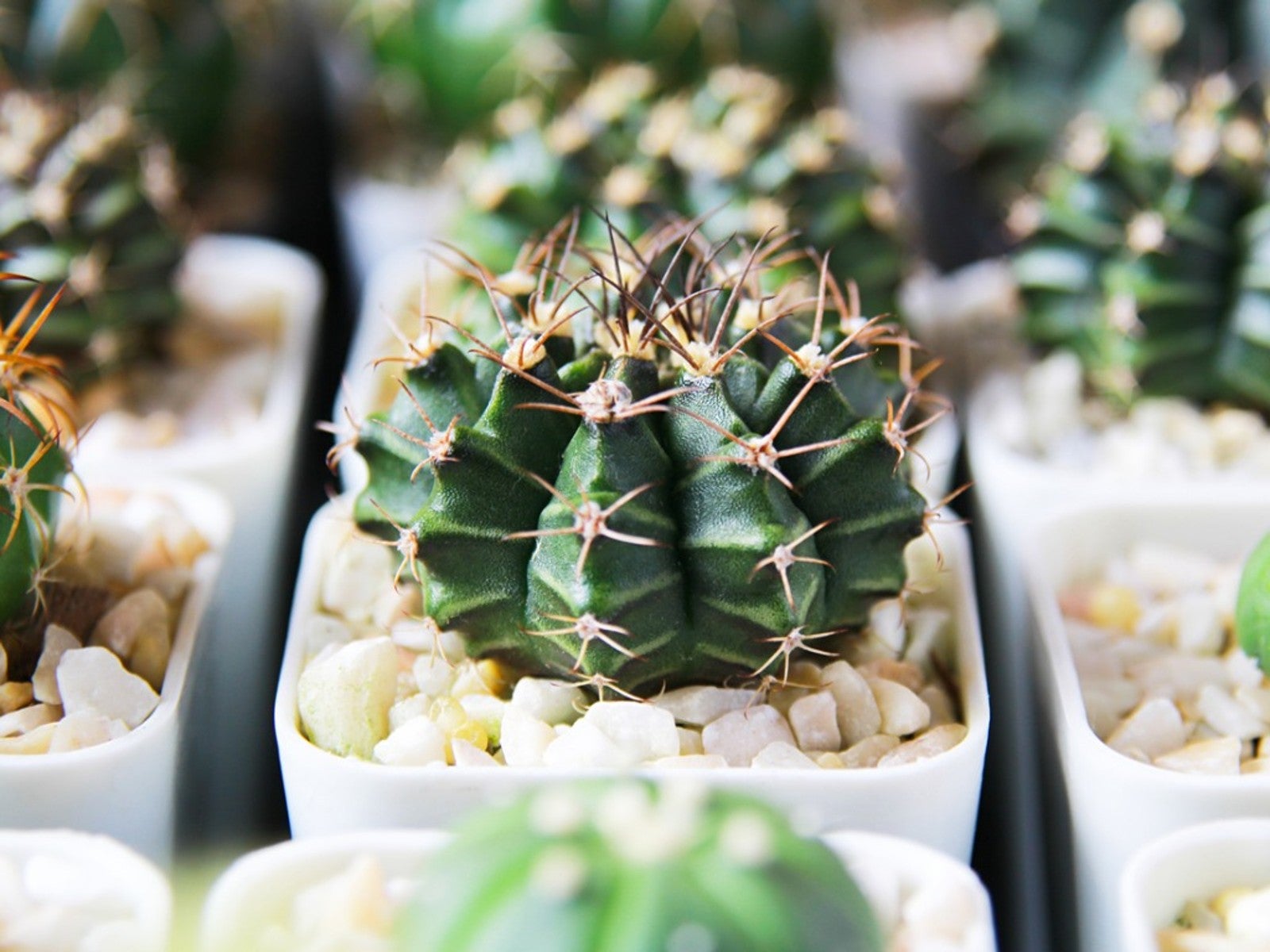 10 No Fuss Cacti - What’s The Best Low Maintenance Cactus
10 No Fuss Cacti - What’s The Best Low Maintenance CactusIf you’re thinking of adding plants to your collection, consider no fuss cacti. Click here for an easy cacti list, even for beginners.
By Becca Badgett
-
 5 Best Succulents For A Bathroom
5 Best Succulents For A BathroomSome succulents can be great options for bathroom decoration. Read on for our top five bathroom succulent ideas.
By Becca Badgett
-
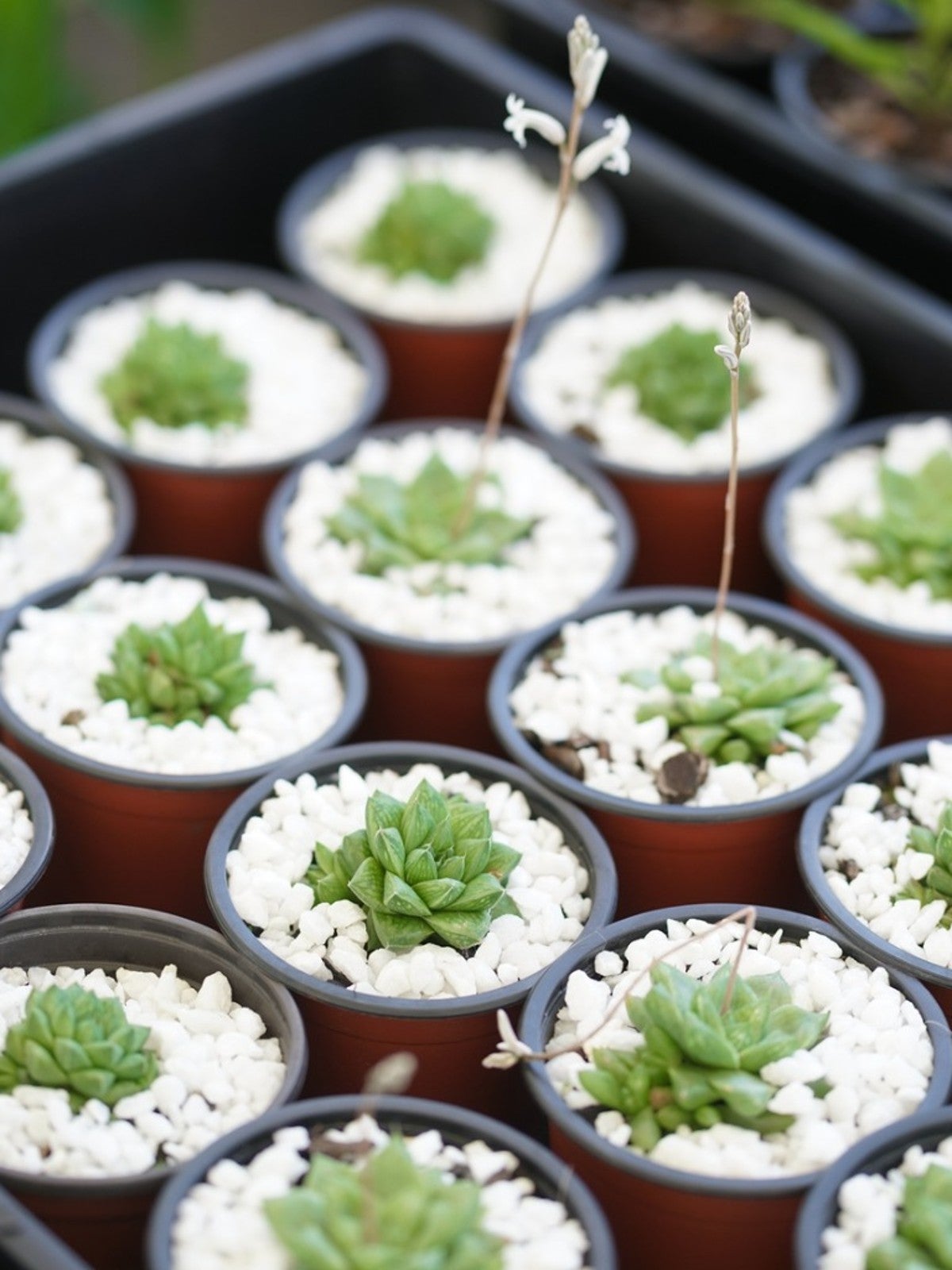 What Is A Succulent Starter Kit - Best Succulent Starter Kits
What Is A Succulent Starter Kit - Best Succulent Starter KitsWhile garden kits are not the most inexpensive option for growing succulents, they do include everything you’ll need. Grow succulents from seed by using a succulent seed starter kit to learn the process and to check your results.
By Becca Badgett
-
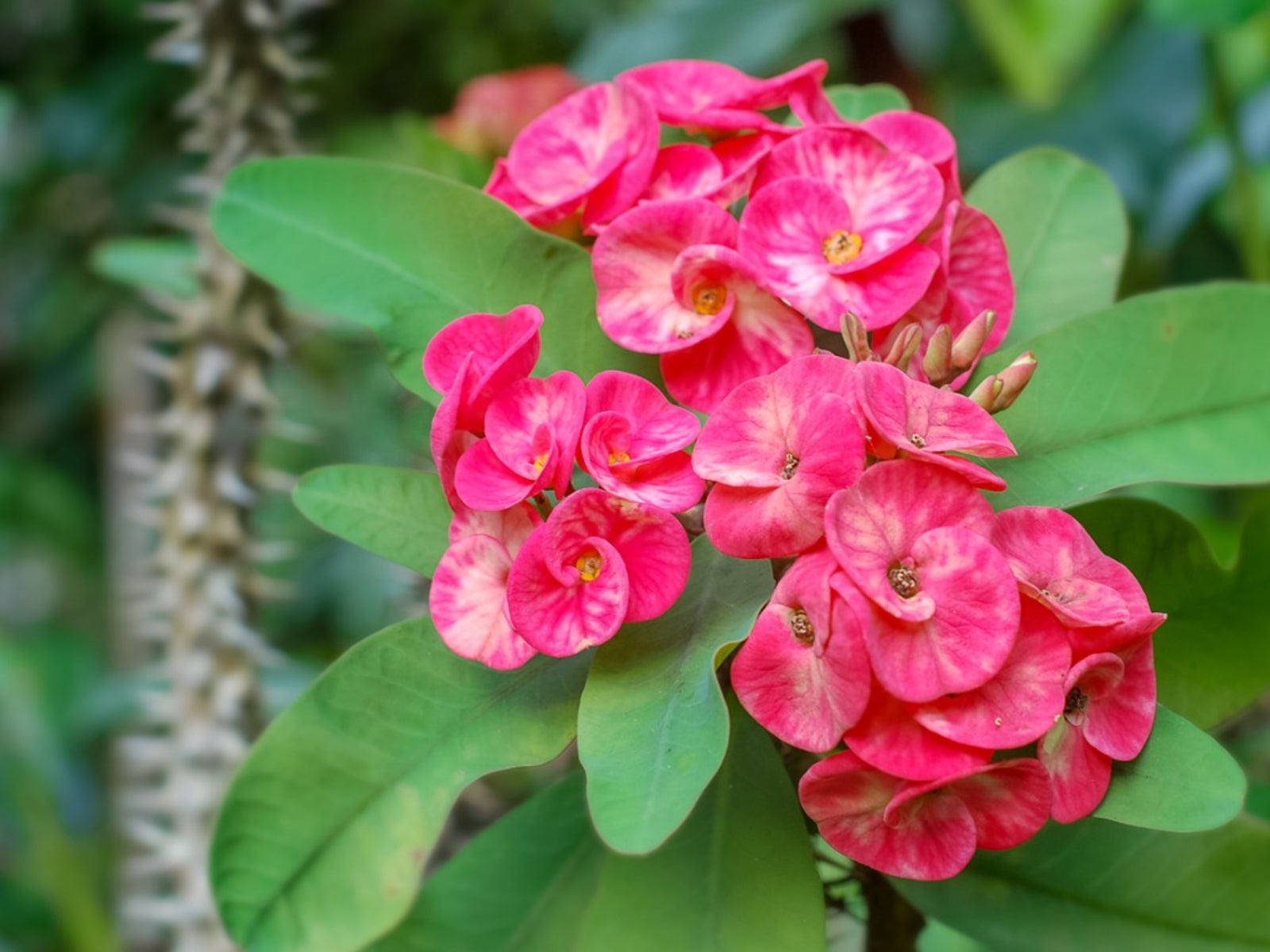 Dazzling Succulents - Succulents With Striking Flowers
Dazzling Succulents - Succulents With Striking FlowersWhen you think of succulents you may just envision their unique leaves and stems. But succulents also produce bright and bold flowers in the right conditions. Read on to learn more.
By Bonnie L. Grant